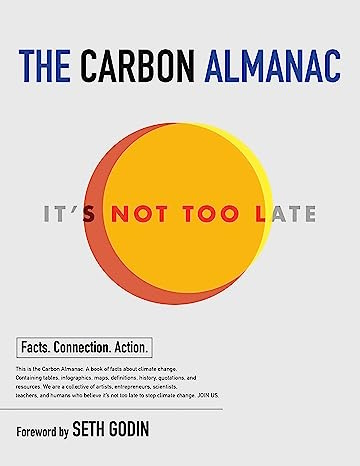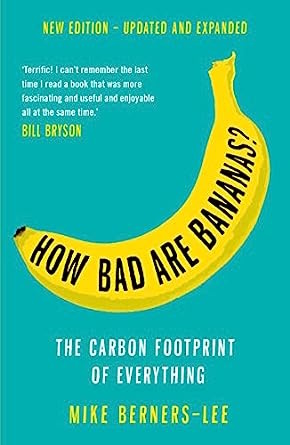The cost of doing business should not be the Earth.
Sustainability is a word that gets thrown around casually, as if it’s something you can retrofit into your business – a ‘nice to have’.
What do we really mean when we talk about ‘sustainable business’?
Sustainability is about meeting present needs without compromising future needs. ‘Sustaining’ the resources we have.
Social responsibility, economic viability and environmental responsibility.
Sustaining the business on an economic level
Sustaining people on a social and community level
Sustaining finite natural resources
How can we balance the competing forces of people, planet and ‘profit’?
It’s a concept referred to as the Triple Bottom Line. I’ve written about this previously:
Read it here:

But in summary, I argue that the pursuit of ‘profit’ is fundamentally disconnected from ‘people’ and ‘planet’.
Don’t get me wrong, I’m not against businesses making money – you have to in order to be financially sustainable.
But money and profit are not the same.
Profit is about acquisition and greed. Prosperity is about generating enough for everyone with a stake in the business. Reinvesting and creating self sustaining cycles.
Sustainability balances people, planet and prosperity
Achieving ‘sustainability’ is a journey rather than a destination. By its very nature it will change and evolve over time. It requires a holistic approach that addresses the interconnections between these different dimensions.
As businesses and individuals we can work on all aspects, holistically. As a small business, you have the power to vote for the kind of world you want to thrive in.
Economic Sustainability
For a small business, this is about covering your costs, paying yourself and your team a living wage (at least) and having active capital in the business to invest and develop it.
On a wider scale, it’s about creating a healthy, robust and resilient economy that provides long-term prosperity for all (not just an extremely wealthy few). An enterprise ecosystem of ethical, responsible and equitable businesses. It involves promoting responsible consumption and production patterns, supporting fair trade practices, and minimising waste. Embracing circular economy principles, where resources are used efficiently.

Social Sustainability
You can’t be truly sustainable without social justice. In any business, the most important resource is the people within it. Without them, you have no business. And every business has an impact on the community around them. How those businesses behave effects every aspect of people’s lives.
A business can impose itself on a community or it can invest in it.
Social sustainability is about the well-being and quality of life for all individuals and communities. It involves promoting social justice, equality, and inclusion. Ensuring access to basic needs like healthcare, education, and clean water, as well as fostering safe and resilient communities.
For a small business, this can be as simple as supporting your neighbourhood. Being actively involved in improving the community for the benefit of all.
Making that community more attractive ultimately brings in more people, more business and increases the value of the area. Being a good neighbour makes sense on every level.
To have a greater impact, you could also consider setting your business up as a Social Enterprise. This is a different legal structure where the purpose of the business is to make a positive difference to a social challenge.
Environmental Sustainability
This is often what people mean when they talk about ‘sustainability’, forgetting the social and economic perspectives.
This aspect focuses on protecting and preserving the natural environment. It involves reducing pollution, conserving resources, reducing waste, promoting renewable energy sources, and respecting biodiversity. Adopting eco-friendly practices, choosing who you will and will not work with and considering the long term consequences of those choices.
Whether or not you ‘believe’ in Climate Change is irrelevant. We’d all prefer to live in a world that isn’t stinking with pollution and choking with waste! A world with green spaces and abundant wildlife.
Environmental Sustainability: Resources
There is more and more support out there for businesses wishing to step up their environmental impact. Much of the funded support is still aimed at larger businesses and is often associated with making their premises more energy efficient but here is some recommended reading and links to apply to your own practice:


Here in Bristol, Future Leap has some useful resources for businesses. Again, they tend to focus more on bigger businesses, but it’s worth getting their newsletter, considering their coworking space, and attending their events. Making new connections to help you improve your sustainable business practice: Coworking Space Bristol | Future Leap Hub
Also in the Bristol area, the West of England Combined Authority have funding and support to help you be more sustainable as a business. I recommended signing up tot he newsletter to find out about new innovations, support and funding: Financial and business support – Growth Hub (westofengland-ca.gov.uk)
The University of the West of England (UWE) also have a Skills For Clean Growth programme to help small businesses: Skills for Clean Growth for SMEs in West of England launches | UWE Bristol
For employers, B Corp is a certification for business as a force for good. Even if your business is not eligible to apply, their website has lots of useful information and links: The UK B Corporation Movement
Find their Climate Tools Base here, with links to plenty of further reading, courses, skills, etc.: B Climate Tools Base — B Corp Climate Collective
Personally, I have some reservations, as there are some businesses that are B Corp certified who create a lot of waste. I am suspicious that some businesses use B Corp to ‘Greenwash’ – I question Volvic as a B Corp (plastic water bottles?!).

Small Actions, Big Difference
We all have a stake in creating a more sustainable way of life, therefore we all have a responsibility. And while it’s true that a small number of big businesses, individuals and governments could change the world if they chose to, all we can control is our own behaviour.
Sustainable Development Goals (SDGs): The United Nations’ Sustainable Development Goals provide a comprehensive framework for addressing sustainability challenges. The 17 SDGs cover a wide range of issues, including poverty eradication, gender equality, sustainable cities, responsible consumption, and climate action. Governments, organizations, and individuals worldwide strive to align their efforts with these goals.
Corporate Sustainability: Many businesses recognise the importance of integrating sustainability into their operations. Corporate sustainability involves adopting environmentally friendly practices, considering the social impact of business activities, and pursuing ethical and responsible business models. It includes initiatives such as reducing carbon emissions, embracing renewable energy, implementing fair labour practices, and supporting local communities.
Individual Actions: Sustainable living is also influenced by individual choices and behaviours. Adopting sustainable habits such as minimising waste, recycling, conserving energy and water, using public transportation, and supporting local and organic products can contribute to overall sustainability efforts. Educating oneself about sustainability and advocating for change in personal and professional spheres are also valuable contributions.
Collaboration and Partnerships: Addressing sustainability challenges requires collaboration among governments, businesses, civil society organisations, and individuals. By working together, sharing knowledge and resources, and fostering partnerships, stakeholders can combine efforts and achieve greater impact in areas like climate change mitigation, conservation, and poverty alleviation.
By considering the long-term consequences of our actions and embracing sustainable practices at individual, organisational, and societal levels, we can strive towards a more sustainable future for ourselves and generations to come.
*As an Amazon Associate I earn from qualifying purchases. This post may contain affiliate links.